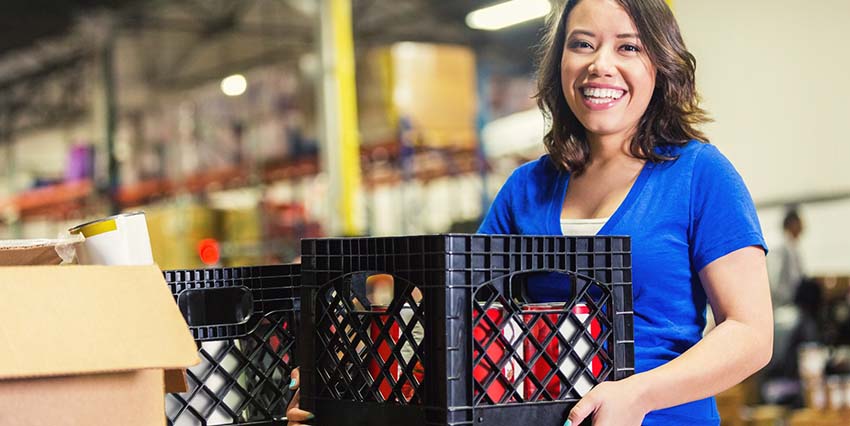Articles
January 12, 2023
End-of-year legislation tackles food waste, helps restaurants with food donations
Fear of liability often a deterrent for restaurants looking to address food insecurity at the local level.

Prior to adjourning late last month, Congress passed the Food Donation Improvement Act to expand liability protections, curb food waste, and reduce food insecurity.
Introduced by Rep. James P. McGovern (D-MA) and Sen. Richard Blumenthal (D-CT), the bill’s liability protections specifically include donations of an apparently fit grocery product or apparently wholesome food that is donated directly to a needy individual by a retail grocer, wholesaler, agricultural producer, restaurant, caterer, school food authority, or institution of higher education.
Restaurants can sometimes be hesitant to donate safe and healthy food out of fear they will held liable if the food potentially makes someone ill. Although the Bill Emerson Good Samaritan Food Donation Act, which was passed in 1996, gave donors some protection when donating food, many businesses expressed concerns that it didn’t do enough.
The Food Donation Improvement Act specifically expands liability protections to include donations of an apparently fit grocery product or apparently wholesome food that is “donated directly to a needy individual by a retail grocer, wholesaler, agricultural producer, restaurant, caterer, school food authority, or institution of higher education for which the recipient is charged a good Samaritan reduced price that is no greater than the cost of handling, administering, and distributing the food or product.”
According to Feeding America, nearly 40% of all food in America is wasted, equating to 130 billion meals and more than $408B in food thrown away each year.
Additional congressional supporters included former Sen. Pat Toomey (R-Pa.), Sens. Mike Braun (R-Ind.) and John Boozman (R-Ark.) as well as Reps. Chellie Pingree (D-Maine), Dan Newhouse (R-Wash.) and the late Jackie Walorski.
Once President Biden signs the legislation into law and the U.S. Department of Agriculture issues regulations, the Association will create resources to help restaurants understand how they can benefit from it.
Introduced by Rep. James P. McGovern (D-MA) and Sen. Richard Blumenthal (D-CT), the bill’s liability protections specifically include donations of an apparently fit grocery product or apparently wholesome food that is donated directly to a needy individual by a retail grocer, wholesaler, agricultural producer, restaurant, caterer, school food authority, or institution of higher education.
Restaurants can sometimes be hesitant to donate safe and healthy food out of fear they will held liable if the food potentially makes someone ill. Although the Bill Emerson Good Samaritan Food Donation Act, which was passed in 1996, gave donors some protection when donating food, many businesses expressed concerns that it didn’t do enough.
The Food Donation Improvement Act specifically expands liability protections to include donations of an apparently fit grocery product or apparently wholesome food that is “donated directly to a needy individual by a retail grocer, wholesaler, agricultural producer, restaurant, caterer, school food authority, or institution of higher education for which the recipient is charged a good Samaritan reduced price that is no greater than the cost of handling, administering, and distributing the food or product.”
According to Feeding America, nearly 40% of all food in America is wasted, equating to 130 billion meals and more than $408B in food thrown away each year.
Additional congressional supporters included former Sen. Pat Toomey (R-Pa.), Sens. Mike Braun (R-Ind.) and John Boozman (R-Ark.) as well as Reps. Chellie Pingree (D-Maine), Dan Newhouse (R-Wash.) and the late Jackie Walorski.
Once President Biden signs the legislation into law and the U.S. Department of Agriculture issues regulations, the Association will create resources to help restaurants understand how they can benefit from it.